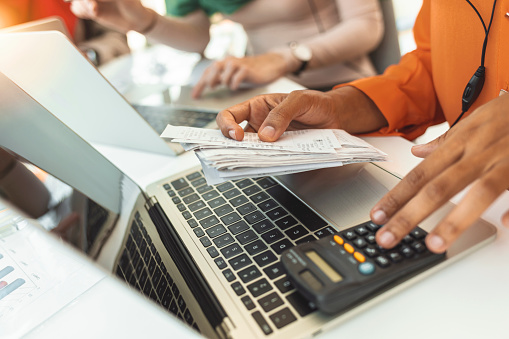If you have decided to invest in your property and give it for rent, you will need to have an accounting system to be able to handle rental income and expenses. A rental property can be a source of regular income and will ensure financial well-being, but for this, first, you will need to understand how accounting works. Rental property accounting and bookkeeping can seem difficult and overwhelming, especially if you are a new landlord and you are taking your first steps in this sphere. But there is no need to worry. You’ll get into it over time, and your skills in property management accounting will get better and better. Here we have prepared a real estate accounting guide to help you understand the basics of it and the minimum knowledge you’ll need to start doing it.
Why is Rental Property Accounting Important?
First of all, let’s understand why rental property accounting is important and how landlords will benefit from doing it right. Managing money from a rental property well will help landlords to save on taxes, increase rental income, and lower expenses. Another benefit is that rental bookkeeping and accounting will help to analyze investments, prepare for tax season, and keep track of money. By tracking and analyzing your investments (especially if you have different properties), you can understand what property you get the most profit from and take action accordingly. You will also reduce operating costs and get tax benefits.
Tips for Rental Accounting
If you have decided to do the accounting for your rental property by yourself, there are some tips that will help you stay organized and maintain your financial health:
- Understand transaction types related to your rental properties.
- Separate your personal and business banking accounts.
- Have a consistent system for recording transactions.
- Have a reconciliation plan.
- Prepare for tax season.
The Basics of Rental Property Accounting
Now let’s dive into rental bookkeeping, and find out how it works and what its basic principles of it are.
Banking
If you have several rental properties, you will need to create a separate bank account for each of them. You may be tempted to transfer all your rental income into your personal account, but it would be best to avoid doing this. Separating your business and personal banking accounts will make tracking your rental income easier as they will not get mixed up with each other.
Easier Income and Expense Tracking
Having a proper bookkeeping process in place will eliminate any risk of forgetting to report income and expenses. Due to rental accounting, you will have all the reports beforehand, and when the time comes to share them with tax professionals, you can do it effortlessly. So, knowing how to record rent expenses in accounting will make your job easier and save you a lot of time to pay attention to other important things. You’ll have more time to analyze how your rental properties perform, and if you find any problems, you can take action quickly to prevent any possible damage.
Rental Property Taxes
It doesn’t matter what type of business you have, you have to pay taxes on the income you make. This is why it’s important to understand how the process goes. You must know your obligations, like small business property taxes, income taxes, etc.
There is no need to feel intimidated by this. You just need to have a fundamental knowledge of rental property taxes. So, make sure that you take the right steps to file your taxes. You can start by learning how to complete the right tax forms correctly. As time passes, you will learn how to manage rental property finances.
Reporting Rental Taxes to the CRA
The CRA is equivalent to the US IRS. It is responsible for collecting taxes, administering tax laws and providing incentive programs in Canada. As a landlord in Canada, you report rental income and expenses to the CRA.
Here is a breakdown of how to report rental taxes to the CRA:
Understanding the form : As the IRS uses the CRA to report rental income and expenses specific forms.
- Schedule T776: This is the main form that landlords use to report rental income and expenses for each of their properties. This is part of your income tax return.
- Form T2125: This form is typically used to report income from renting out personal property, such as renting out a room in your apartment.Minimum reporting threshold:
If your CRA has approved Form NR6, The Intermediary may retain a non-resident tax of 25% of your net rental income (ie the amount of rental income available after paying rental costs). Your agent must pay the tax no later than the 15th of the month in which the rental income is paid or credited to you.
Use of time: When reporting rental income and expenses, make sure you have all the necessary information and time off to avoid mistakes. Please check your calculations before submitting your return.
Paper or Digital Bookkeeping?
The days when everything connected with bookkeeping was done on paper are long gone. As complicated as property management accounting may seem, nowadays, there are a lot of digital tools that make bookkeeping much more efficient, easier, and quicker. So, if you want to save yourself time, it’s highly recommended that you use digital tools for rental bookkeeping. Another good thing about using digital bookkeeping tools is that if your tenants pay rent online, you can make the process of recording these payments automated instead of doing it manually.
As we see, if landlords decide to do their rental bookkeeping by themselves, there are certain things they must be aware of, like property management accounting or how to manage rental property finances. We hope this guide gave you an idea of how you do bookkeeping for rental property and the must-know-things before starting it.





